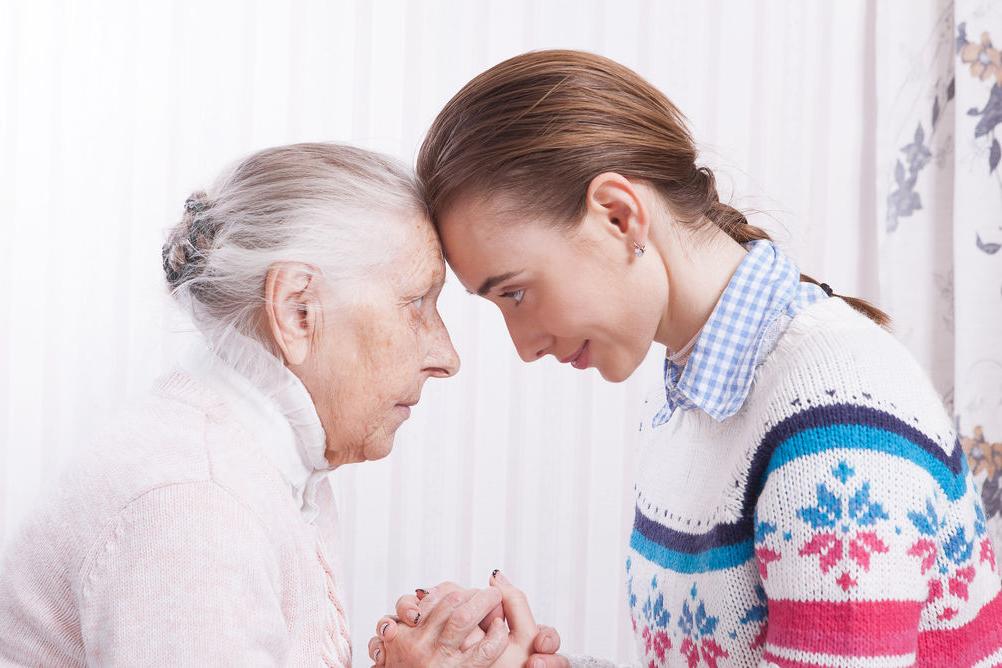Coronavirus: Carers facing 'growing poverty crisis' during pandemic, MPs warned
Letter to MPs from 100 charities and unions warns ‘inadequate’ social security system and low wages has left both paid and unpaid carers ‘languishing in poverty for years’

Your support helps us to tell the story
From reproductive rights to climate change to Big Tech, The Independent is on the ground when the story is developing. Whether it's investigating the financials of Elon Musk's pro-Trump PAC or producing our latest documentary, 'The A Word', which shines a light on the American women fighting for reproductive rights, we know how important it is to parse out the facts from the messaging.
At such a critical moment in US history, we need reporters on the ground. Your donation allows us to keep sending journalists to speak to both sides of the story.
The Independent is trusted by Americans across the entire political spectrum. And unlike many other quality news outlets, we choose not to lock Americans out of our reporting and analysis with paywalls. We believe quality journalism should be available to everyone, paid for by those who can afford it.
Your support makes all the difference.Ministers are being urged to protect carers from a “growing poverty crisis”, with campaigners warning the coronavirus pandemic has placed them under “intolerable pressure”.
A joint letter to MPs, signed by 100 charities and unions including Oxfam, Carers UK and Unison, states that carers on the frontline of the fight against Covid-19 are facing “intolerable pressure” after having been “undervalued and under-rewarded for far too long”.
The organisations argue unpaid carers providing care for family members and friends were “vital” in the UK’s effort to keep vulnerable people safe from the virus, but that they had been left feeling “ignored and invisible” during the pandemic.
The letter states coronavirus should be a “turning point” in how society treats carers and urged ministers to protect them from poverty by increasing social security levels and boosting cash given to social care providers.
It comes as new research by Care UK suggests the majority (81 per cent) of unpaid carers spend more on food and household bills, on top of what they already contribute towards care costs.
A new YouGov poll meanwhile indicates that more than three-quarters of the UK public believe care work is not valued highly enough by the government, while nearly two-thirds believe those on low incomes who look after sick or disabled people should receive more financial support.
Katy Styles, from Chartham near Canterbury, is an unpaid carer for her husband who has a degenerative, progressive disease, and she said her costs had increased due to the coronavirus.
“We aren’t able to leave the house and we haven’t been able to get an online shopping slot, so we’ve been reliant on small local firms for supplies; and each delivery costs an extra £10. Not everyone has that sort of money to spare every time they need a shop,” she said.
Katy is supporting the call for greater recognition and support for carers, saying: “It felt like carers’ contributions were totally below the radar before the pandemic, but now, behind closed doors, it feels like we’re completely invisible.
“Besides the financial implications of the crisis, physically I’m exhausted and mentally I’m crushed. And yet through Carer’s Allowance, the government values my efforts at less than £10 a day. It makes you feel worthless.”
The coalition is calling for increases to key benefits, including Carer’s Allowance and Child Benefit, as well as immediate changes to universal credit, including removing the five week wait for an initial payment, the limit on the number of children families receive payment for and the benefit cap.
The organisations are also calling for a significant cash injection into the social care system to enable providers to pay their workers a minimum of the Real Living Wage.
Danny Sriskandarajah, chief executive of Oxfam GB, said: “Carers have long been under-valued – even before this crisis hit, too many were living below the breadline, struggling to stay afloat.
"There’s overwhelming public support for carers to be given a fairer deal - political leaders across the UK owe it to them to make sure they’re protected from poverty, now and in the future.”
Dr Mary-Ann Stephenson, director of the Women’s Budget Group, said: “This pandemic has shone a light on the vital role of carers. For too long, care work has been undervalued, underfunded and underpaid.
“Caring responsibilities don’t fall equally; women make up the vast majority of the nation’s carers, both paid and unpaid. That means that it’s women who are at greatest risk of being pushed further and further into poverty during the Coronavirus crisis.”
A Department of Health and Social Care Spokesperson said: “Unpaid carers make an invaluable difference to the lives of the people they support, and are an integral part of our health and social care system, especially during this unprecedented period.
“During the outbreak, providing emotional support counts towards the Carer’s Allowance threshold of 35 hours of care a week so that unpaid carers can continue to claim Carer’s Allowance if they need to self-isolate.
“We are working closely with carers organisations to support carers during this period. We have provided funding to extend Carers UK’s helpline opening times, information and advice services so unpaid carers are able to access trusted information and advice, and we are working on further guidance for young carers which will be published shortly.”
Join our commenting forum
Join thought-provoking conversations, follow other Independent readers and see their replies
Comments